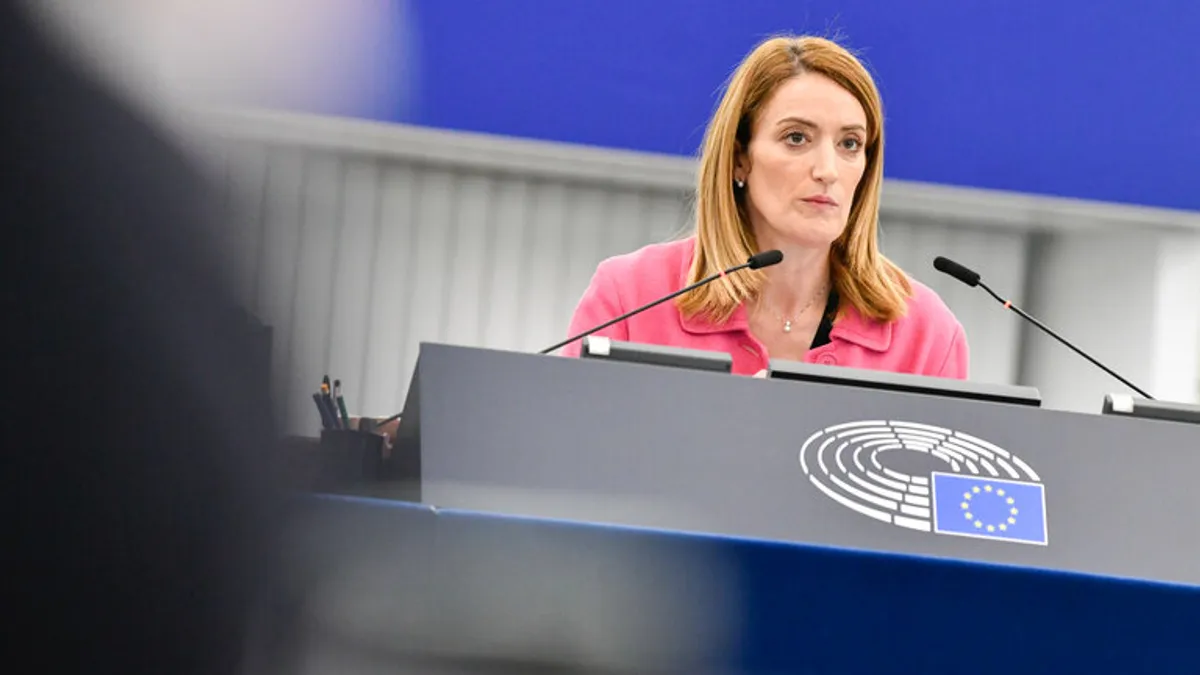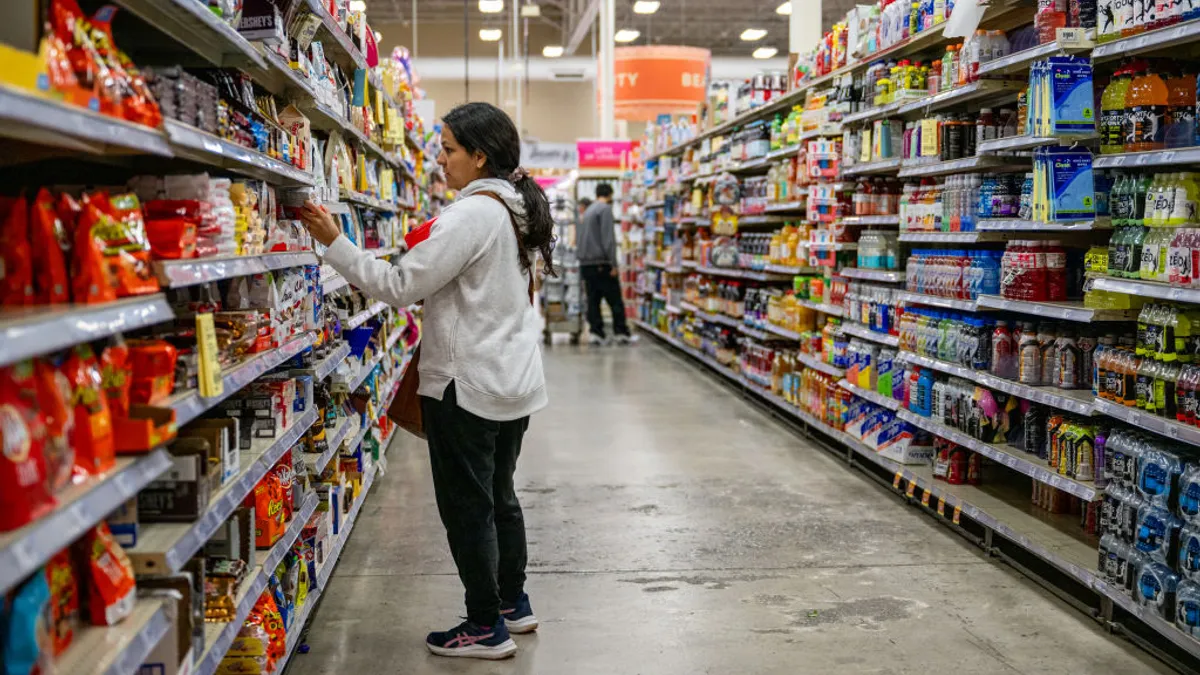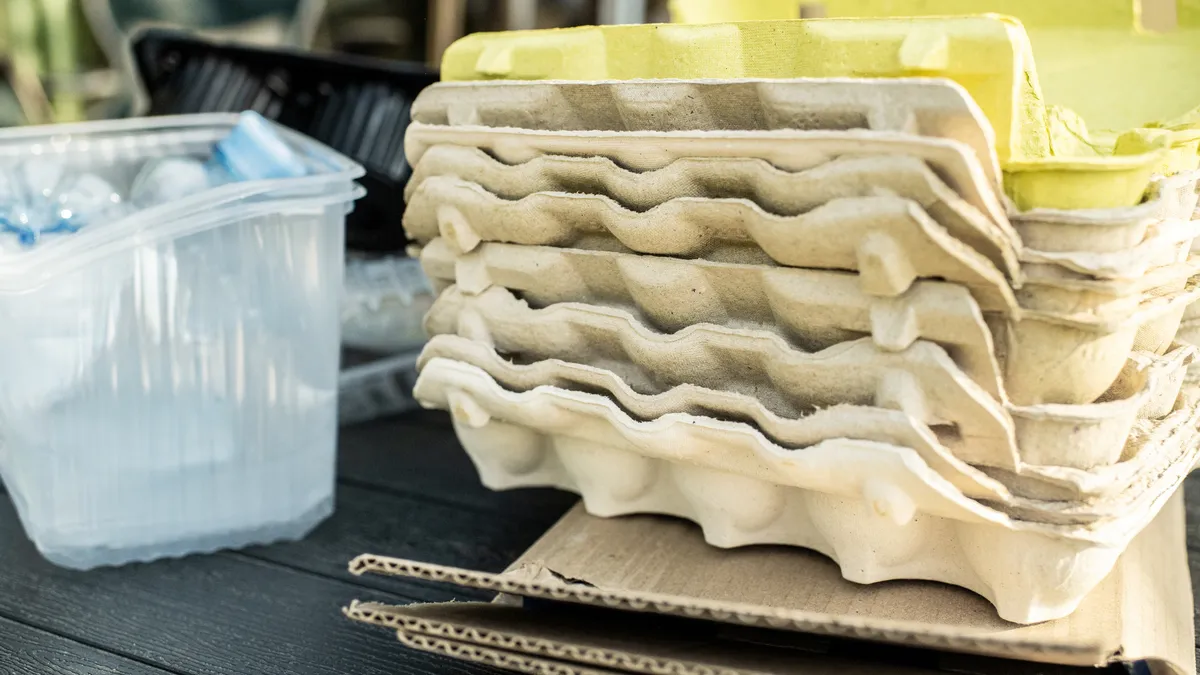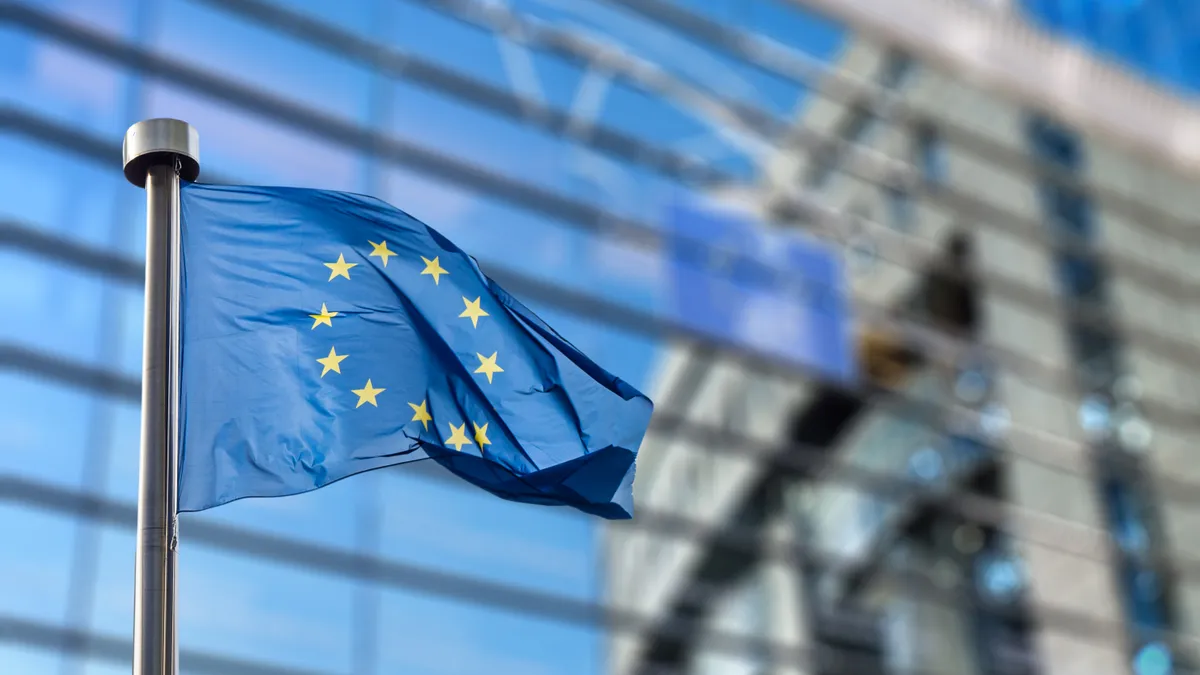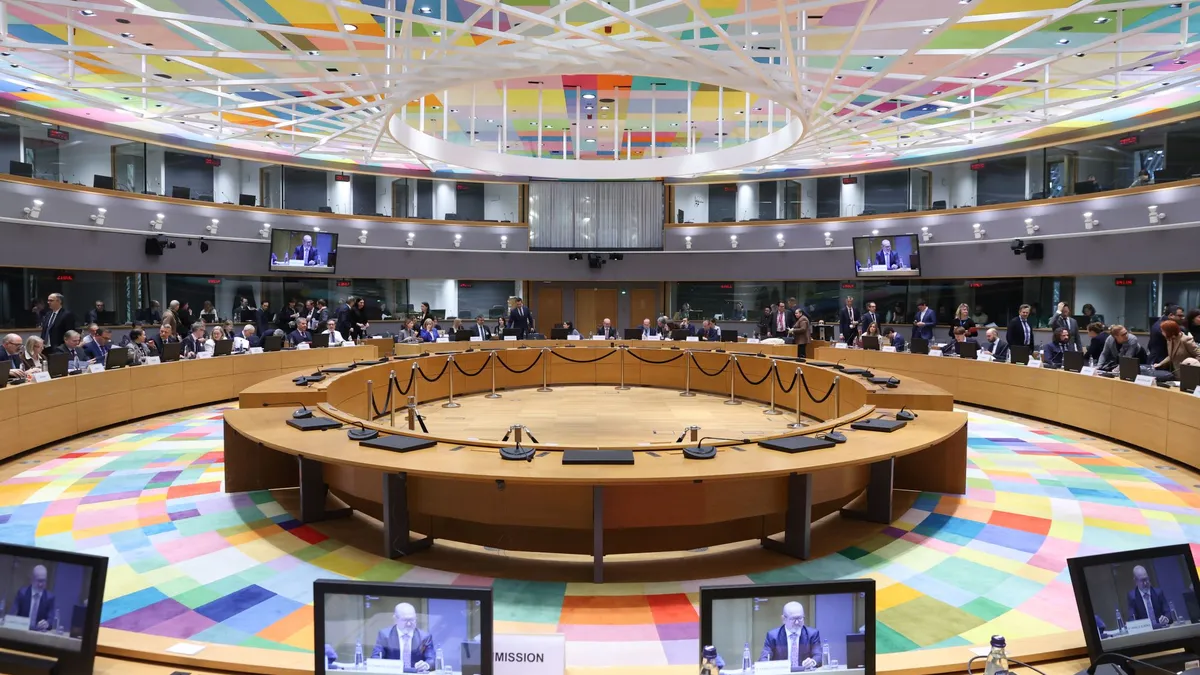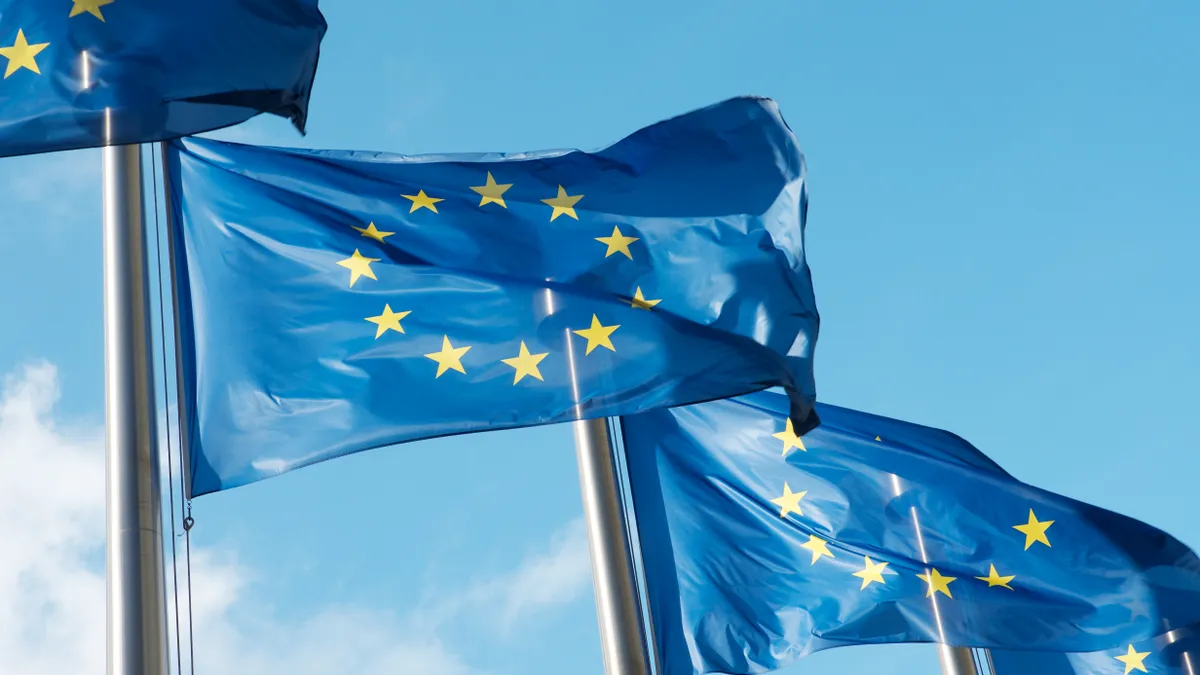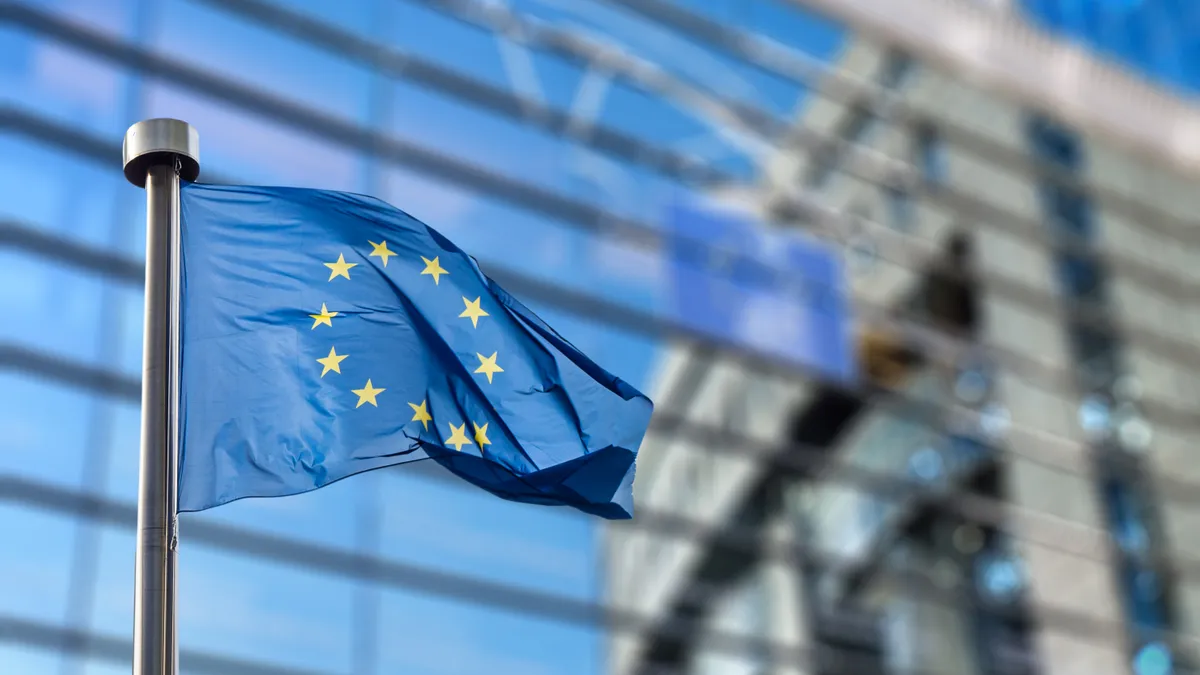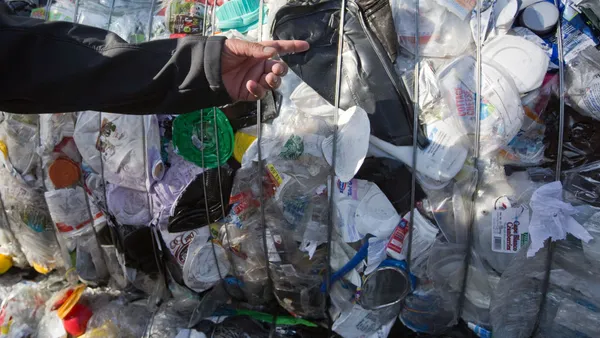The European Parliament on Wednesday voted in favor of adopting new rules that aim to reduce waste from plastic and unnecessary packaging, the latest step advancing the Packaging and Packaging Waste Regulation.
This year PPWR has been working its way through trilogue negotiations — those between the EU’s governing bodies. It will still be months before the regulation is potentially given final endorsement. The text is still subject to legal checks and won’t be decided upon until after elections for a new Parliament, which are scheduled for June.
“It is impossible to give a timeline now, as this will be decided by the new Parliament in autumn (and the Council will decide then its own schedule for final adoption),” the European Parliament press office said via email.
There were 476 votes in favor of the regulation, 129 against and 24 abstentions. A Wednesday news release from Parliament noted that the rules have also been provisionally agreed on with the European Council. Topline targets include reducing packaging by 5% by 2030, 10% by 2035 and 15% by 2040. It calls for banning certain single-use plastic packaging starting in 2030, including for small toiletries and fresh produce.
Various packaging formats will have to meet certain phased-in requirements for deposit return system collection, recyclability and use of recycled content. There are also provisions that ban “forever chemicals” above certain levels in food packaging. Some types of packaging, and takeout food and beverage distributors, will also face threshold targets for offering reusable options.
Europen, the European Organisation for Packaging and the Environment, sees the latest vote as “another step forward in fostering sustainability,” Secretary General Francesca Stevens said in a Europen post on LinkedIn.
“European industry is well-prepared for the packaging transition, with our journey already underway, and our commitment to reducing waste, increasing reuse, and achieving full recyclability,” Stevens said. “Stepping up waste management and taking reuse and recycling infrastructure to a new level will be pivotal in this endeavour. We will also need to be ready to address potential challenges linked to the adoption of complex secondary legislation and new national laws introducing more market barriers.”
Flexible Packaging Europe, an industry association, said that PPWR’s recyclablity targets represent “a challenging opportunity” for flexible packaging “that the industry is ready to take.” Mirroring worries expressed by Europen, FPE noted “it remains concerning that Member States are granted freedom to adopt divergent national measures.”



